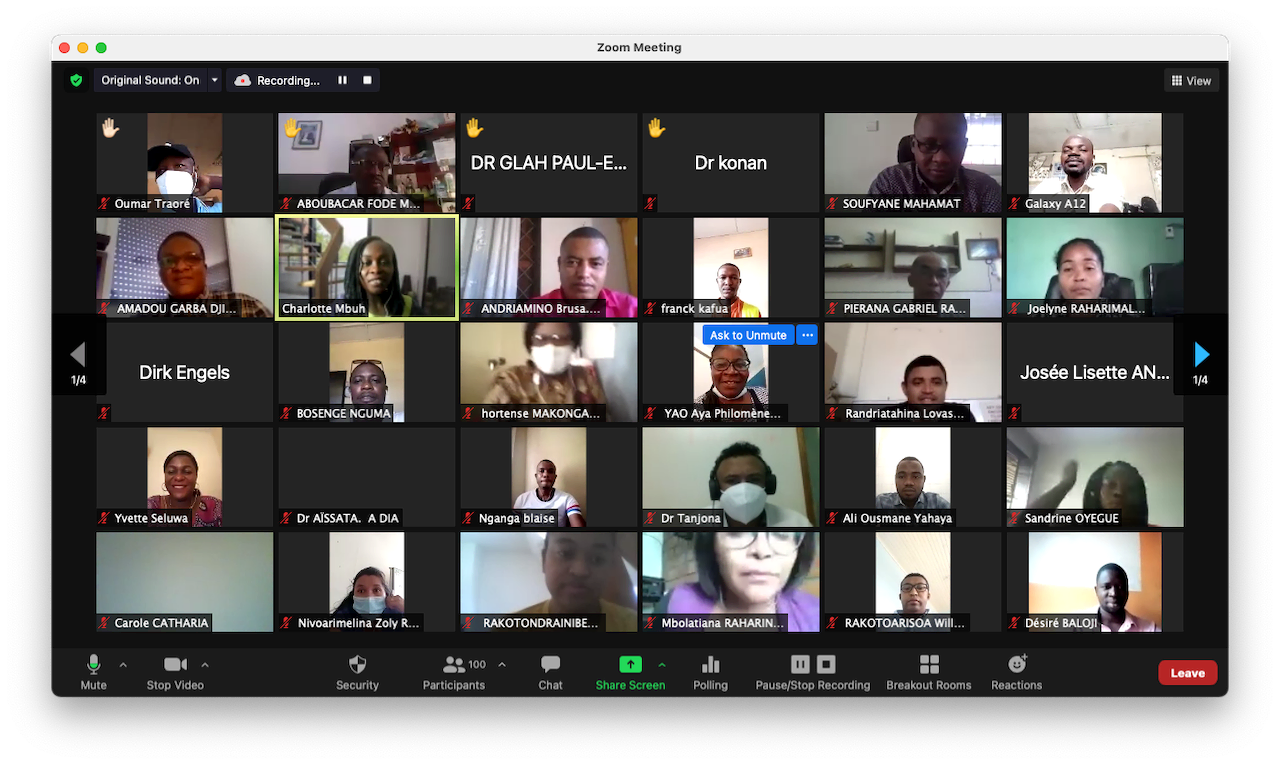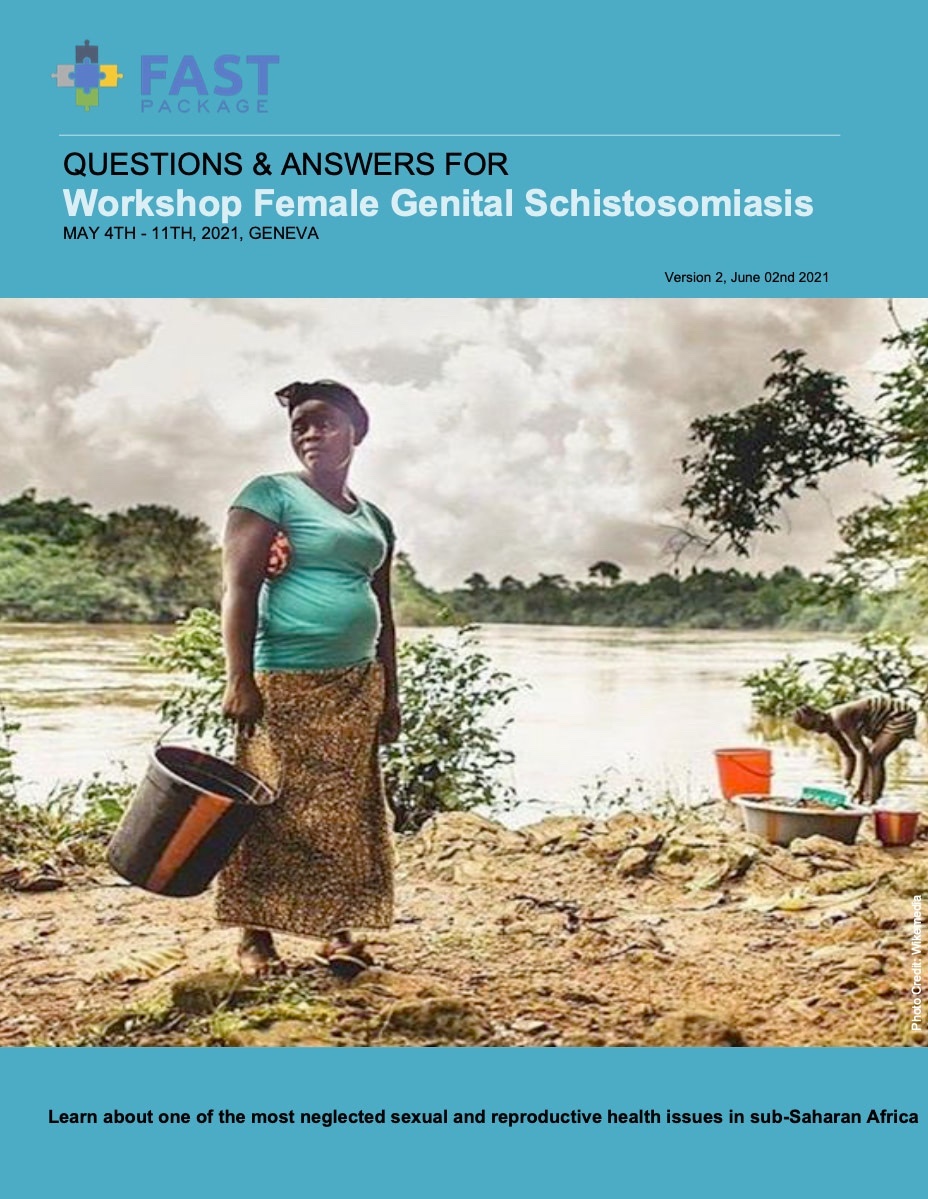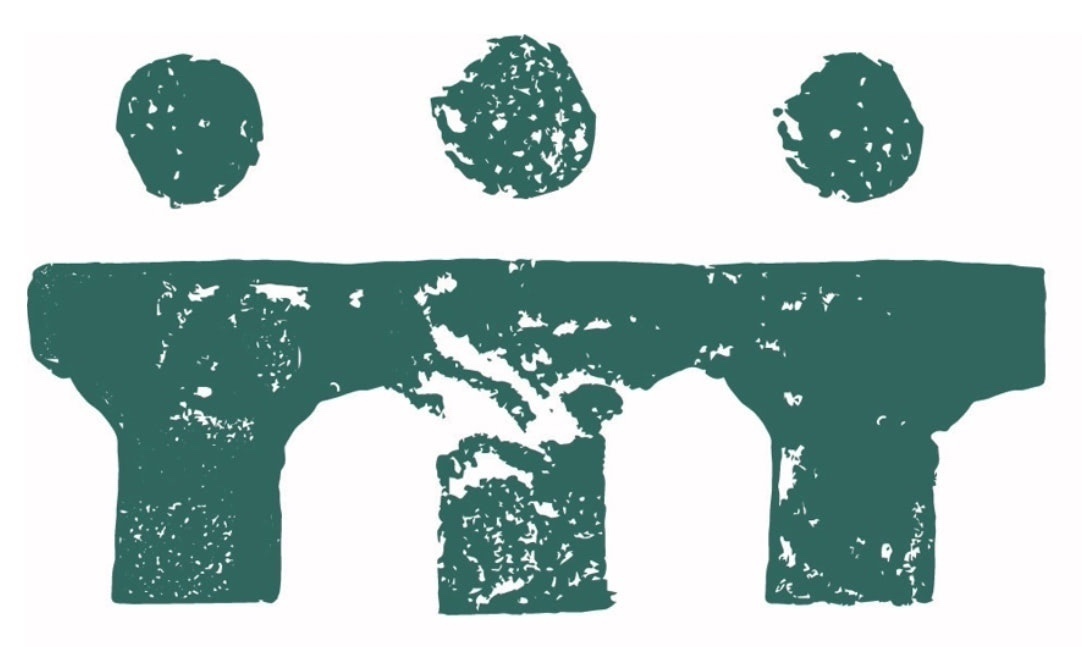Vous cherchez la version française? Cliquez ici.
An invitation from The Geneva Learning Foundation and Bridges to Development
Special Event: Tackling Female Genital Schistosomiasis (FGS)
You are invited to listen, learn, and share with colleagues from endemic countries who are taking action to prevent, diagnose, and treat FGS
00
DAYS
00
HOURS
00
MINS
00
SECS
FGS has been described as one of the most neglected sexual and reproductive health issues in sub-Saharan Africa with an estimated 56 million women and girls infected.
Whether you are a health professional working in a schistosomiasis endemic country in sub-Saharan Africa or a global health professional concerned about women’s health, you can make a difference.
From a global, fully-digital workshop to networked action at the most local level
In May and June 2021, over 300 health care professionals in Sub-Saharan Africa participated in the FAST Package workshop on Female Genital Schistosomiasis led by Bridges to Development in partnership with the Geneva Learning Foundation.
Working together for the first time, these professionals developed 213 feasible plans for local solutions to tackle FGS in their contexts.

“My experience of the workshop was wonderful […] How in my 29 years of nursing and midwifery practice had I never heard of FGS?”
Female, midwife from Ghana working at Nursing and Midwifery Training College
Pan-African local solutions to tackle FGS
The interventions proposed by country-based practitioners range from training practitioners in their own hospital, facility, or community, to changing the midwifery school curriculum to include FGS.
In this Special Event, you will hear first-hand from practitioners about their successes, lessons learned, and challenges.

Recognizing that learning outcomes are necessary but insufficient to lead to improved health outcomes, FGS workshop alumni are launching the first FGS Impact Accelerator.
What is the Impact Accelerator?
The Geneva Learning Foundation’s Impact Accelerator is a new system to foster the emergence of leadership needed to tackle complex problems.
Practitioners are connected to each other across health system levels, geographic borders, and other barriers.
- We pledge – to each other and to the communities we serve – to achieve impact.
- We continuously share learning and support each other to do better, faster.
- We measure our progress, giving and receiving feedback to figure out how to improve.

Get new resources to help practitioners tackling Female Genital Schistosomiasis (FGS)
All Special Event participants will receive this key resource, produced by global experts in response to questions asked during the FGS workshop. Do you know the answers to questions like these?

Transmission
How is schistosomiasis transmitted? Is FGS sexually transmitted? Is FGS transmitted through contact? Do people with FGS need to be quarantined? Is the water infected by urine? If contaminated water is thoroughly boiled before drinking, will chances of schistosoma infection reduce? If water is taken from a contaminated river infested with Schistosoma haematobium is allowed to stay for some time, can someone still be infected with Schistosomiasis?
Progression of the Disease
Is there a case definition for FGS? Is FGS a risk factor to any of the genital or other cancers? Is there an ovarian or fallopian signs or complications of FGS? Do the eggs that are being excreted cause the blisters and patches at the vaginal region during FGS. Do the eggs also lodge in the tissue around the vaginal region to cause the observed ugly patches? If yes, how would one remove the lodged eggs? What are the causes of the blisters and grainy patches during FGS?
Diagnosis
What about invasive interventions /investigations for young girls/virgins? What age category can we not do the pelvic examination? Do I need to confirm the diagnosis of FGS before treatment? Or can I do preemptive treatment? How reliable are laboratory tests to diagnose FGS?
Treatment
How approved is this drug [PRAZIQUANTEL] for FGS? Considering FDA approval in Ghana? And is it only prescribed or in healthcare centers?I would like to know if Praziquantel is the only medication for the treatment of FGS? Can pregnant women get treatment with praziquantel? In which trimester can a pregnant woman take Praziquantel? Is the dose for praziquantel (PZQ) the same for a child as in an adult? How many times can one be treated? Is there any specific time between the first dose and reinfection? Can you prophylactically administer praziquantel to infertile couples? How do we address the psychosocial aspects of FGS infection? When can preemptive treatment be done?
Vector Control
Can you please highlight how the vector control is carried out? Is it possible to identify an infected water body before a community starts showing signs of infection? Why can’t we just fix the water source? Should we ask about the history of treatment?
Awareness
Is there a global day on FGS? How do we prevent women working in freshwater for longtime as rice transplanters, clothes cleaners, etc. especially in endemic areas?
Partners

About The Geneva Learning Foundation
The Geneva Learning Foundation (TGLF) is a Swiss, non-profit, private foundation that works to connect learning leaders to research, invent, and trial breakthrough approaches for new learning, talent and leadership as a way of shaping humanity and society for the better.

About Bridges to Development
Bridges is led by a team of experienced professionals who have demonstrated commitment and delivered solutions to global problems throughout their careers, leveraging experience in diverse organizations such as Gavi, The Vaccine Alliance, The Global Fund and the Bill & Melinda Gates Foundation.
Bridges to Development wishes to acknowledge Merck KGaA, Darmstadt, Germany, for its financial support.

